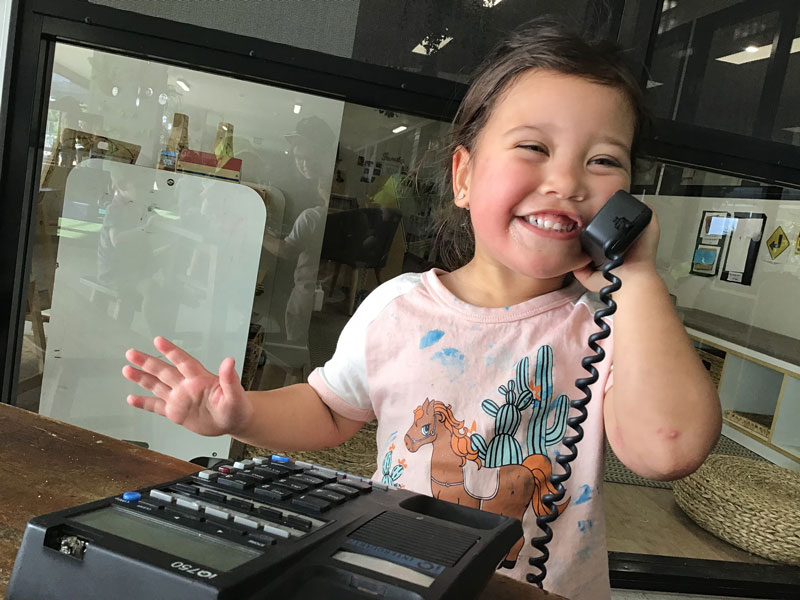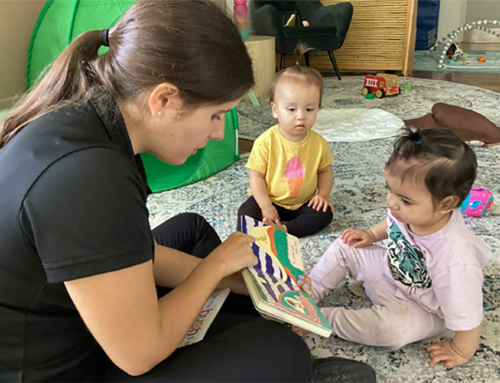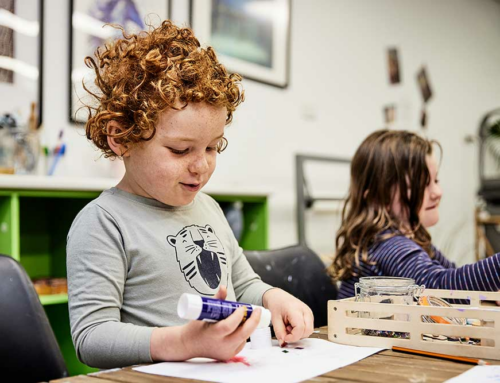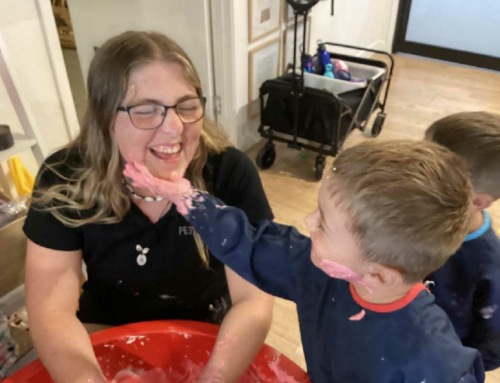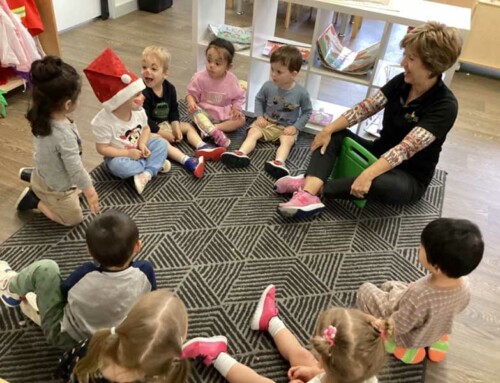Not sure how to survive working at home with children? While it’s no walk in the park, some families have been doing it successfully for decades. Whether your remote working is temporary or you’re undertaking a lifestyle change, our hot tips can keep you sane.
Many people have a problem adjusting to life when working at home with children. There are a few things that you don’t want to get into the habit of doing, and there are good habits you want to start or maintain. When remote working with children, routines are critical.
While our advice focuses on parents working from home while caring for young children, our tips apply to many types of situations where your office or workspace merges with home life.

7 hot tips for remote working with children
It doesn’t matter if you have one or eight children, when working at home with children be prepared for disruptions. You can’t control the baby’s sudden change in sleeping patterns or a child’s constant interruptions to show you what they’ve been doing.
What you can do is prepare for the interruptions. Your children are now your co-workers. You know the ones that like to drop by for a chat when you have work to do? Prepare for it, embrace it and have a contingency plan for your work.
The thing with remote working with children is that you’re not alone. Sometimes, when you’re in the middle of a Zoom meeting, and you feel that tug at your legs, it’s easier to pick your child up and at the appropriate time, introduce them. It might start a home office trend.
1. Plan, prepare and communicate when working at home with children
As a family, work out a plan as to who will do what and when. If you’re fortunate to have another adult on hand, you might be able to coordinate and share your work time and the time you spend caring for children.
Communication is key to a smooth remote working environment with children. Sit the family down and talk in terms that your children will understand. Explain the changes and how they can help so you can work from home.
You also need to communicate with your employer that you need to balance working from home while caring for children, so remote working continues. It’s also a good idea to stay in touch with your work colleagues remotely for some social interaction.
If you work for yourself, be flexible with hours. Communicate your availability with your clients.

2. Set realistic goals when remote working
It’s unlikely that your productivity will be the same as working on-site. However, every experience is different. You may discover that you’re more productive with fewer interruptions from work colleagues.
Be kind to yourself and others who are also remote working and may have children. Set realistic goals and adjust those KPIs for interruptions. If you have a supervisor, talk to them about the challenges and expectations, and communicate when you need to have time out for the family.
3. Set up a clutter-free home office space
You may not have a spare room that you can clear out for a home office, but you can create a space for your work with the things you need that is free of clutter. Use masking tape (also known as painter’s tape) to define your working area.
If you’re on your own and balancing caring for children with work, place your office space in an area where you can observe what they are doing. Tell your children that if they enter this area, there’s an invisible “cone of silence” where their whispers and patience earn extra cuddles.
4. Set up an office space for your child
Children love to imitate and roleplay. So, why not set your toddler or preschooler up with their own office space. It doesn’t have to be right next to yours but in a place where you can easily observe and interact with them from time to time.
Young children don’t necessarily require a laptop or phone to play with, you could give them an old typewriter where their imagination and learning can run riot. You may also want to give them access to some limited time with children’s educational apps.
You can also leave different activities in their “office” for them to choose from and enjoy, like sensory boxes, sorting games and arts and crafts. This set-up is a useful way to get on with your work while still being able to observe and interact with their play.

5. Stick to routines when caring for children
Routines give children a sense of security and safety. If they’re used to going to child care when you go to work, talk to them about why things have changed. You may be able to maintain some of the routines and rhythms that they are used to doing at daycare, at home.
Try to stick to your home routines as much as possible. If you get up and go for a walk every morning, keep doing it while observing social rules. Adjust your work routines to fit around your home life. If you normally catch the bus to work, use this time to set up your child’s day.
Integrate your children’s time into yours. Take a break with them for lunch. If your employer is flexible, and understands you’re working at home with children, suggest a change in schedule. You could wake up a little earlier or stay up a little later to get things done.
Avoid burning the candle at both ends as that can be exhausting.

6. Parents working from home — don’t panic if you can’t get online
No internet provider is perfect. Be prepared for downtimes with contingency plans when your regular service is down. Text your employer to let them know and make use of this downtime to relax and be with your children.
It’s also an excellent opportunity to prepare lunches and meals for later on when your internet is back up and working.
7. Take time out for yourself
When working at home with children, it’s easy to forget to stop working, and eventually, you become part of the furniture. Take regular breaks and walk around a bit to keep both your mind and body fresh. Commit to some mindful meditations with your children.
Everyone needs a bit of downtime to recuperate. When your children are fast asleep, and the chores are out of the way, it’s your time to relax. Read a book, watch the telly or have a soak in a long warm bath — do the things that help you unwind.

Connect now with Petit Early Learning Journey
At Petit ELJ, our philosophies and beliefs guide us in all that we do. We believe in connecting with our community to support health and wellbeing, as well as partnering with parents through open, honest and reciprocal communication. We stay in touch and connect with our families, who may also be working at home with children.
Indoor and outdoor play experiences are an essential part of our curriculum. We believe play is one of the most important objectives for learning, and design these to enhance children’s ideas. If you’re seeking an early childhood education service that genuinely cares about you and your child, then we’d love to show you more.
